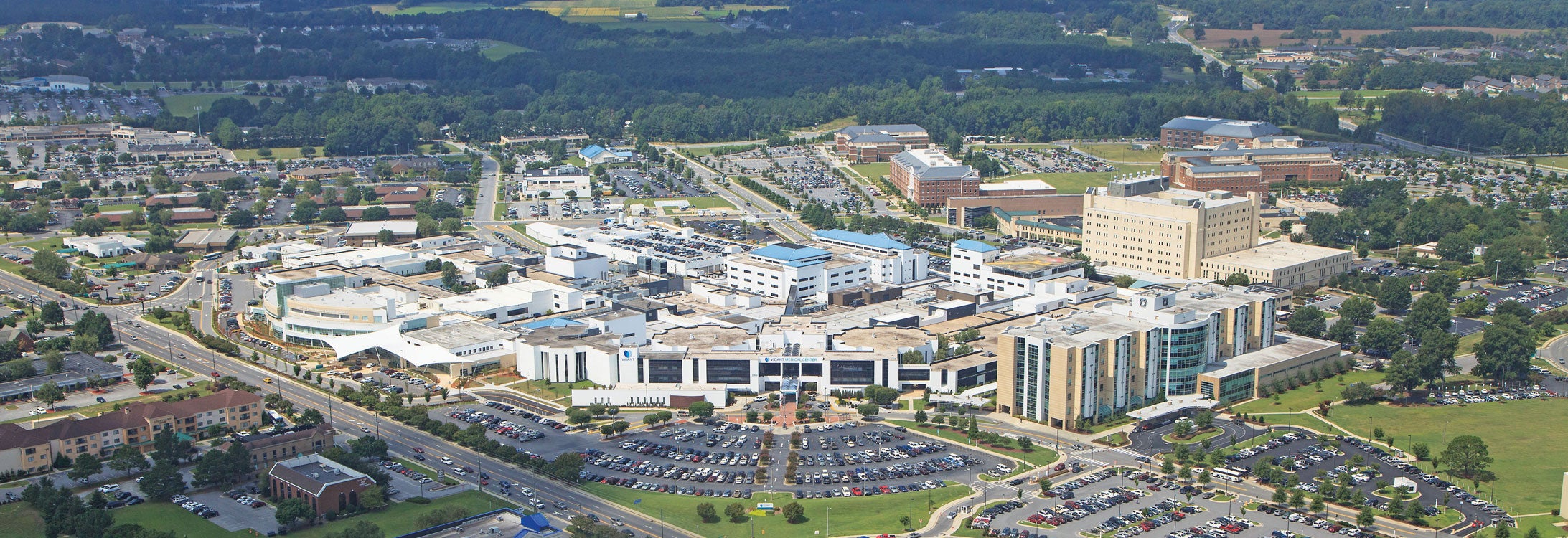Residency
We welcome you to our program. East Carolina University/ECU Health Medical Center (ECU/VMC) Internal Medicine Residency Program is an integral part of the ECU- Brody School of Medicine (BSOM) and ECU Health hospital, both set on the beautiful health sciences campus of ECU.
The Department of Internal Medicine includes nine subspecialty divisions- individually exhibiting a dedicated group of clinical educators and staff equally committed to patient care and medical education. Each clinical faculty member at the BSOM makes up the largest medical practice in Eastern NC recognized as ECU Physicians, which promotes the theme: “Smart Medicine.” The synergism of these several driving forces provides the foundation of our program allowing us to meet the needs of each medical resident but also the community as a whole.
We proudly serve the greater Greenville area of Pitt county as well as the 29 surrounding counties. Our referral base extends to the majority of eastern North Carolina, which includes approximately 1.4 million people.
The ECU IM Program has a well-established history for over 30 years. Foremost, the residency program is strongly committed to clinical training, resident teaching, and mentorship. We are a friendly, tight-knit group of residents fully integrated with faculty to foster a supportive environment that serves to improve the health of our region. Additionally, we maintain a receptive atmosphere that is amenable to both our community’s and our resident’s needs.
Thank you for your interest in our program, we kindly welcome you. In tribute to East Carolina University’s trademark, “Tomorrow Starts Here,” we invite you to learn more about what makes up our excellent program. Please contact us, or even better, visit us in eastern North Carolina to see for yourself.
-The Internal Medicine Residency Program
Overview
The Internal Medicine Department at East Carolina University has a perpetual dedication to excellence in clinical experience, patient care, and teaching. We strive to provide a superb foundation for our future doctors and academic leaders. Healthcare is constantly fluctuating, and internists care for patients in a variety of settings, with a wide-range of medical conditions and preventive medicine needs. Our mission is to provide our residents with the skills necessary to thrive in a ever-changing medical environment. The department agrees that establishing a program that fosters dynamic learning and quality patient care will lead us toward these ultimate goals.
There are a total of 96 residents associated with the Internal Medicine program. Current residents are from places throughout the world- bringing expert perspectives in many fields of medicine. Our resident staff includes 22 PGY-1 residents, of which 16 are categorical interns and 6 are preliminary interns. Additionally, we have 3 combined programs in IM/Pediatrics, IM/Psychiatry, and IM/Emergency Medicine.
Our residents maintain the heartbeat of the hospital, from leading all codes to performing all assigned procedures. Residents are encouraged to practice autonomy at a graduated responsibility level. For instance, a PGY-1’s role is to assume direct patient care. PGY-2 or PGY-3’s are allowed independent supervisory roles as managers and leaders of their team. Another unique aspect of our program is that we start your career counseling before you even arrive, and we will individualize your residency experience to help you get locked into the career pathway that you desire. Our inpatient teams include hospitalist rotations at both VMC and community hospitals as well as several sub-specialty services (Cardiology, Neurology) in addition to General Internal Medicine, providing many contrasting patients.
Ambulatory training is based at the Moye Medical Clinic with over 52,000 outpatient visits each year. Overall, ECU Physicians has approximately 120,000 visits each year. Residents experience a spectrum of ambulatory requests; from evaluating patients with urgent medical problems to those simply requesting pre-operative evaluations or a general medical exam. During ambulatory months, residents have a great opportunity to work with sub-specialty clinicians to emphasize a diverse training.
